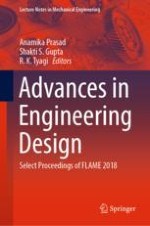2019 | OriginalPaper | Chapter
Effects of Post-weld Heat Treatment on Microstructure and Mechanical Behavior of Friction Stir Welded Thick Section Al–Zn–Mg–Cu Alloy
Authors : T. Ramakrishna, S. Srinivasa Rao, G. Swami Naidu
Published in: Advances in Engineering Design
Publisher: Springer Singapore
Activate our intelligent search to find suitable subject content or patents.
Select sections of text to find matching patents with Artificial Intelligence. powered by
Select sections of text to find additional relevant content using AI-assisted search. powered by
